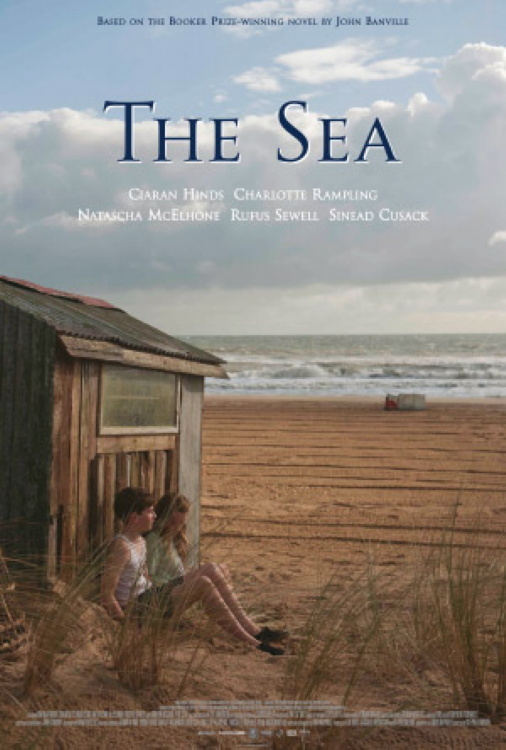The Sea, adapted from John Banville’s elegant but startlingly confusing 2005 novel, was never going to be a feel-good watch. It’s a meditation on grief and a study of loneliness, at times painful to watch. Direction by first-timer Stephen Brown, the film brings two very different spheres to light: the gold-tinged, gorgeous childhood of 1955 and the sombre, dour world of adulthood. It’s restrained, given the subject matter, and kept very tidy for such a difficult adaptation. Clocking in at 87 minutes, it’s clear that Brown and Banville were aware of the complex material, and have made it much simpler for the viewer. Making the most of Co. Wexford’s scenery, The Sea is not superb, but does enough to arouse strong emotions in the viewer.
The film is set in three different eras, cutting between them in an imitation of the diary entries of Banville’s novel. The first is Max’s childhood, spent at the idyllic beaches of Ireland’s south east. These scenes are tinged with gold – the sun streams on the posh, freckled children Max befriends, and their days spent by the sea seem idyllic. But Brown’s direction, as well as a melancholic score, makes all this beauty uncomfortable. Combined with the bleak present – Max’s wife has died and he’s found solace at the bottom of a bottle – The Sea is overwhelmingly, defiantly dark. Life, it seems, is not a beach.
I want to talk about the criminally underused Sinead Cusack, who plays Max’s late wife in flashback scenes. A former photographer, Anna is reduced to a shell of herself on her deathbed. The scenes between herself and Hinds are devastating – jealousy, suffering and anger are expelled in the most restrained, quiet ways. A magical element of The Sea is that melodramatic screaming and shouting rarely occurs –the dark emotions at the surface of the film swell, but break, causing even more damage to the couple. Performances from Ciarán Hinds and an excellent Charlotte Rampling anchor proceedings, as the “flashback” acting is considerably less refined. Rufus Sewell, who plays the children’s caddish father, seems like he’d be more at home in a 1980’s British comedy and Natascha McElhone seems wooden, giggly and vacant. It’s the children who shine in the flashback scenes: the downright manipulative twins particularly. Matthew Dillon, playing the young Max, isn’t perfect, but has enough emotional range at twelve to convey the effect that summer had on him.
The Sea is a film your mammy is probably going to love, but there’s plenty of meat for the critical viewer too. Dealing with love, loss, death and alcoholism makes a weighty film, but it’s definitely an interesting, and distinctly Irish, watch.

